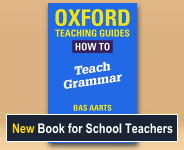Compound word creation
In this activity, students work with an interactive smart board display to build compound words.
The Activity pages for this starter can be found in the menu entitled 'This Unit' in the upper right corner of this page. Each Activity page contains slides that can be displayed using a projector or smart board.
Activity 1 displays 10 words which present you with a puzzle. Ask the students to fit these words together in pairs to form five well-known compound words. They can drag a word alongside another to join them, double-click to separate them. Some words may be OK in more than one possible combination, but the challenge is to use up all the words! Students can ask for a clue if they are stuck.
Then, looking at the set of words in Activity 1, encourage students to try being creative! Can they invent some new compound words and some likely meanings for them? For example, what might a nosegap be? How would somebody firedive? They should give definitions for their invented words, and write some example sentences to show how they think the words could be used.
In Activity 2, students are given 5 words. For each word, they need to think of as many compounds as possible which include that word as a part.
- Remember that, to form a compound, they need to add another full word. So stopgap is a compound (stop and gap are both words), but stopper is not (-er is not a full word but a suffix).
- Although compounds are typically written as a single word or with a hyphen between the parts, they are sometimes written as two separate words. For example, life cycle can be considered a compound, and is considered a compound by many dictionaries, even though it is often written as two words (and sometimes with a hyphen: life-cycle).
- They should also try swapping the order of their words! For example, plant-pot and pot-plant are both legitimate English words.
Welcome!

Englicious is totally free for everyone to use!
But in exchange, we ask that you register for an account on our site.
If you’ve already registered, you can log in straight away.
Since this is your first visit today, you can see this page by clicking the button below.
- Printer-friendly version
- Log in to view or leave comments

